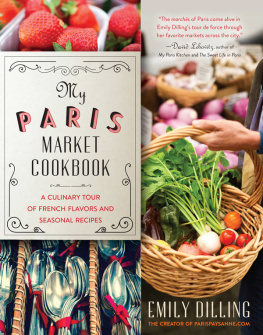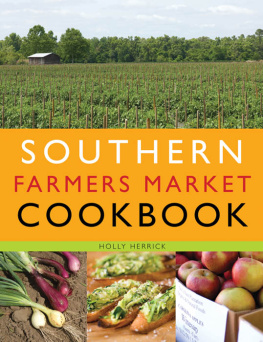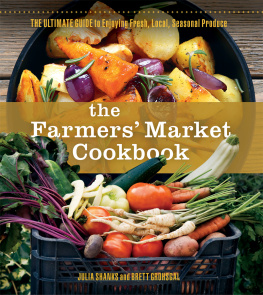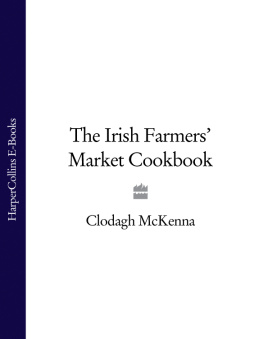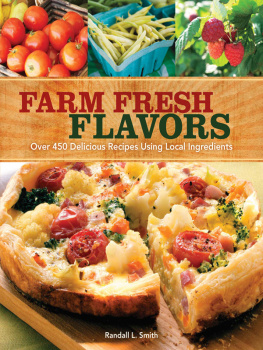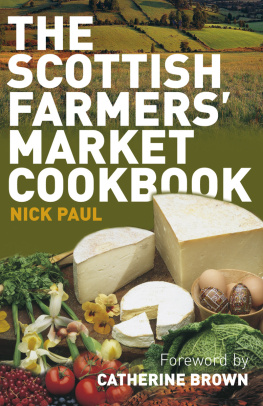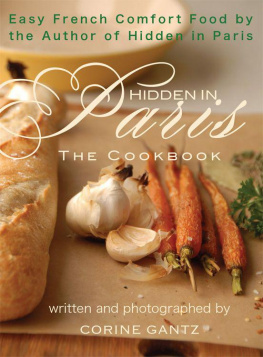Copyright 2015 by Emily Dilling
All rights reserved. No part of this book may be reproduced in any manner without the express written consent of the publisher, except in the case of brief excerpts in critical reviews or articles. All inquiries should be addressed to Skyhorse Publishing, 307 West 36th Street, 11th Floor, New York, NY 10018.
Skyhorse Publishing books may be purchased in bulk at special discounts for sales promotion, corporate gifts, fund-raising, or educational purposes. Special editions can also be created to specifications. For details, contact the Special Sales Department, Skyhorse Publishing, 307 West 36th Street, 11th Floor, New York, NY 10018 or .
Skyhorse and Skyhorse Publishing are registered trademarks of Skyhorse Publishing, Inc., a Delaware corporation.
Visit our website at www.skyhorsepublishing.com.
10 9 8 7 6 5 4 3 2 1
Library of Congress Cataloging-in-Publication Data is available on file.
Jacket design by Laura Klynstra
Front cover photographs: Shutterstock
Back cover photographs by Nicholas Ball
Author photograph by Anna Brones
Print ISBN: 978-1-63450-584-0
Ebook ISBN: 978-1-63450-864-3
Printed in China
To my parents, two amazing independent producers,
and to my Paris ladies, my favorite local treasures.
Cookbooks will give you ideas... but the market will give you dinner.
Judy Rodgers
CONTENTS

| INTRODUCTION | 
|
The Paris Paysanne blog, which inspired this book, began in the summer of 2010. I had just returned to Paris from a trip to the United States where I toured the West Coast, visiting friends from San Francisco to Seattle. My travels brought me in contact with food activists and engaged eaters, from Slow Foodinspired chefs to farmers market fanatics to excited foodies who would talk to me of cow shares and edible forests. When I got back to Paris, which I had called home for five years at that point, I was excited to join the French equivalent of the growing food movement I had seen in the United States. It didnt take long for me to realize that my two homes were worlds apart when it came to food activism. France, whose cuisine is based on a rich culinary tradition which has provided the grammar for gastronomy, seemed to be suffering from the adverse effects of resting on ones laurels. While the capital city has always had a noteworthy food scene including some of the best, most highly rated restaurants in the world, good food in your average restaurant appeared harder and harder to find. Quality meals had seemingly all but disappeared from the corner bistrot , where frozen and vacuum-packed foods are habitually reheated and served. The locally grown seasonal produce that had so excited me at farmers markets in the States was a rare find at Paris marchs , where farmers were becoming less and less present, replaced with resellers hawking wholesale, industrial produce from as far as South America. Among all the disappointments in the Paris food scene, the absence of farmers and locally grown produce at the market shocked and saddened me the most. These very markets were an inspiration to great chefs and food icons such as Julia Child and Alice Waters, and now they remained a shadow of their former selves and a false representation of greater days.
So I began visiting the markets in search of independent producers, which I added to my growing Farmers at Paris Markets map with each new discovery. Market visits led to more encounters and questions, as I started talking to the chefs, coffee roasters, and craft brewers that made up the eat local movement in Paris. I began exploring the art and savoir faire behind making some of the countrys most amazing natural wines, and learned about the terre behind Frances terroir . Ive met amazing, passionate people along the way and have never ceased to be amazed by the creativity, dedication, and integrity of these artisans.
It seems fitting that the idea for the blog, and later this book, all started at the markets. For me, even the simplest neighborhood march is a crossroads of culture, community, and customs. Whenever I visit a new city, the first thing I do is find the local market. I can think of no better way to expose oneself to a new place and its people than by going to a market. Markets bring neighbors together. They introduce us to the people who grow our food, the people who feed us. They are a source of new ideas, inspiration, and recipes. They are the way we participate in the most basic and fundamental ritual shared by all humansshopping for the ingredients that we will take home, make into a meal, and share with the people we love.
I hope that My Paris Market Cookbook brings you a little bit of the magic of Paris markets, the joy of locally grown food, and an appreciation of the people who bring us nourishment and happinesswhether it be a recipe, an immersion into a busy Saturday morning at the march, or a place to get the perfect filtered coffee while in town. Most of all, I hope this guide will bring you a step closer to supporting the people in your life, no matter where you are, that put food on your table.

| A FEW NOTES ON THE RECIPES IN MY PARIS MARKET COOKBOOK | 
|
All the recipes in this book are inspired by people and places that Ive come to love while living in Paris and exploring France. I have tried to choose simple recipes that are representative of classic French cuisine and that concentrate on quality, locally sourced ingredients. The selection of seasonal recipes that youll find in My Paris Market Cookbook were intentionally chosen because they require only a few ingredients, which can, for the most part, be easily found at your local farmers market.
It is my hope that the recipes included in this book will not only be enjoyable once prepared, but also fun to serve to family and friends. If youve never made a cheese souffl or madeleines, I hope that you decide that this is the time to try. By exploring the recipes in this book, and the stories of the city that inspired them, I hope you will find that French cooking, like life, is actually not that complicatedyou just need good ingredients!

| FINDING FARMERS AT PARIS MARKETS | 
|
This book is intended to be a guide and resource for anyone who wants to eat well in Paris. Whether you are visiting from afar or have lived in Paris all your life, My Paris Market Cookbook offers insight into the best cafs, restaurants, bars, shops, and market stands for locally grown seasonal produce and products that reflect the essence of French terroir.
HOW DO YOU FIND A FARMER?
Spotting a farmer at a Paris market is not always an easy task, especially to the untrained eye or non-francophone. Unlike farmers markets in the United States, French farmers dont necessarily advertise the name or location of their farm at their market stand. There is also no universal system indicating whether or not the vendor is the actual grower of the produce or merely a reseller. However, there are a few key words and telltale signs that you have found a real farmer at your market. Here are a few that I live by:

